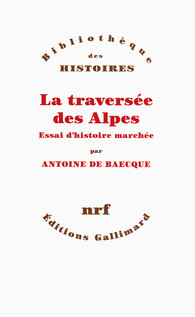Antoine de
Baecque is one of the most Cahiersiste
film critics. After having been a writer at the magazine, joining in the late Eighties, he went on to write its
‘official’ history -- “You really need a lot of time… to read all of Cahiers’ 600 issues,” he has said in regards to these efforts -- and then to being
its chief editor for a couple of years, from 1996 to 1998. If he could be
associated with any of the prior period’s chief editors and original Cahiers writer-directors, de Baecque
would be more Daney-Godardian than Toubiana-Truffautian. His film criticism and
interest bring together history, politics, philosophy and theory. For de
Baecque, Cahiers represents modern film criticism and the original
French New Wave modern filmmaking. He has written many books covering this period and its key figures
like François Truffaut (with Serge Toubiana), Jean-Luc Godard, and most
recently Eric Rohmer (with Noël Herpe). These volumes confirm his status as one
of the great and most thorough French director biographers, which is rare in it of itself.
Along with an impressive resume, which includes teaching and editing Libération’s cultural section, some of de Baecque’s other great
books, essays, and interviews include Camera
Historica: The Century in Cinema, on cinema and its relation to history; an
interview with Alain Badiou in the philosopher's book Cinema; La Cinéphilie:
Invention d’un regard, histoire d’une culture 1944-1968 (cf. my essay); books on Andrei Tarkovsky,
Tim Burton and Maurice Pialat; a magisterial book on corporeal metaphor in Revolutionary
France (1770-1800); one of his most recent, and a masterpiece of French film
criticism, with Philippe Chevalier, Dictionnaire
de la pensée du cinéma; and most recently La traversée des Alpes: Essai
d'histoire marchée.
De Baecque will
be at the Alliance française on Thursday, December 11th at 7PM to
talk about WWI films and the on the weekend (the 13th & 14th)
to introduce some Jean-Luc Godard shorts and The Old Place.

No comments:
Post a Comment